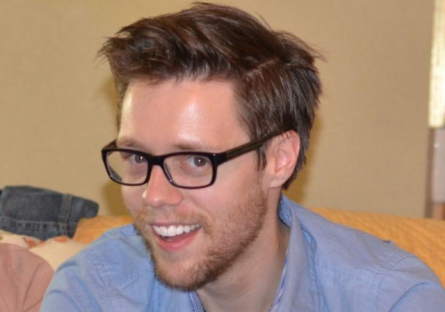

Three Estrella Mountain Community College (EMCC) students recently completed an internship that not only benefited them in the here and now but will also assist countless students in the future.
Math Professor Dr. Filippo Posta facilitated an “Educational Coding” internship over the summer wherein he mentored his students to code problems in Discrete Mathematics for the MOER Learning System. MOER, or Maricopa Open Educational Resource, is designed for mathematics, providing delivery of homework, quizzes, tests, practice tests, and diagnostics with rich mathematical content. Students can receive immediate feedback on algorithmically generated questions with numerical or algebraic expression answers.
“They had to first solve the mathematical problem correctly, then create a code to replicate the problem in MOER, and finally add randomizations so that each student gets a slightly different version of a problem,” Dr. Posta said.
Each student had a different set of problems and each of them ended up coding about 15 problems. The coding was tricky because the students had to randomize the problems, meaning they had to code them in a way that each attempt used different numbers.
“That was important since most problems are solved in the book and through the randomization, students can practice their knowledge and gain confidence,” Dr. Posta said.
The internship benefited the students in various ways, giving them a deeper understanding of HTML and boosting their resumes, but the students agreed that the most gratifying aspect was paying it forward.
“The most rewarding part of the internship was knowing that my code would help math students in the future,” said Jonathan Thomas, who took Dr. Posta’s Discrete Mathematics class last spring and is now at Arizona State University (ASU).
Jenny Wong, who also took Dr. Posta’s Discrete Mathematics course last spring and is now at ASU, echoed Jonathan’s sentiments.
“The most rewarding part was knowing that the problems I was creating will be used in the future by students like me,” she said. “I have taken classes through MOER and it is rewarding to know that I am giving back to the community.”
Due to COVID-19, the students had to participate in the internship virtually, meeting over Webex and communicating via email, but Jonathan said the most challenging part was giving helpful feedback for others while implementing the feedback of others to his own work.
“Giving genuine feedback that is both helpful and nonabrasive is a crucial skill for any team member in the tech industry, especially when it comes to writing code,” he said. “People take
pride in their work, so that means really studying each individual piece of work and asking myself, ‘Before I suggest this change, how would I take such a suggestion for myself on my own project? Is this really a helpful recommendation?’”
The internship was sponsored by Verizon and each student received a $1,000 stipend.
But wait, there’s more!
Dr. Posta also led a publishing internship over the summer. Last spring, he ran a research group funded by WAESO (Western Alliance for the Expansion of Science Opportunity) on sports analytics. The group created a statistical model that was simple and yet capable of predicting the winner in a professional European League soccer game as well as other publicly available statistical models.
“I thought that the results were worth publishing and two of the four students in the group decided to work on the publication,” he said. “EMCC funded the Internship and we met regularly for six weeks to combine our findings into a manuscript that we submitted at the end of July.”
The findings were submitted to “The Journal of Student Research,” an academic, multidisciplinary, and faculty-reviewed student journal devoted to the rapid dissemination of current research. Dr. Posta expects to hear back from the reviewers in a couple of months.
The students received a $500 stipend and reimbursement for the 1-credit course they had enrolled in.
Dr. Posta said he had many proud moments along the way and they all related to the students’ ability to rise to a certain challenge whether fixing a bug in the code or creating a better explanation to describe a statistical model.
“I hope that I inspired them to pursue some research opportunities as they start their next educational phase.”